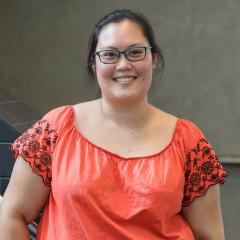Soil washing and immobilisation are being developed as cost effective techniques for the remediation of PFAS contaminated soils. PFAS are a group of around 5000 chemicals that are mainly used to make coatings and products that are heat, oil, stain, grease and water resistant. This project aims to assess the applicability of these soil washing and immobilisation techniques for the remediation of contaminated Australian soils and establish their efficacy in remediating a range of PFASs, including many chemically persistent legacy pollutants of concern. The project will provide a scientific basis for understanding the benefits and limitations associated with soil washing and immobilisation techniques and provide a more comprehensive understanding of future liabilities associated with the formation of PFASs from precursors remaining in remediated soils.
Outcomes
The project has, to date, provided a scientific basis for understanding the benefits and limitations associated with the soil washing technology, the immobilisation techniques, and an understanding of the biotransformation potential of PFASs from precursors remaining in the remediated soil.
Research Outputs
Kabiri, S., Monaghan, C.L., Navarro, D. and McLaughlin, M.J., 2024. Hydrophobic interaction is the dominant mechanism of zwitterionic PFAS adsorption to carbon-based sorptive materials in water and soil. Environmental Science: Water Research & Technology, 10(2), pp.420-430.
Conference Abstracts
Kabiri, S. Assessing leaching behaviour of perfluorinated alkyl substances from contaminated soils using static/column leaching tests, The Soil Science Australia and the New Zealand Society of Soil Science Joint Conference, Cairns, Australia, 27 June – 2 July 2021.
Nguyen, T.M.H. Influences of chemical properties, soil properties, and solution pH on soil-water partitioning coefficients of per- and polyfluoroalkyl substances (PFASs), The Soil Science Australia and the New Zealand Society of Soil Science Joint Conference, Cairns, Australia, 27 June – 2 July 2021.
Kabiri, S. Assessment of the durability of sorptive remediation of soils contaminated with per- and polyfluorinated alkyl substances, SETAC Australasia Conference, 30 August – 2 September 2021.
Kabiri, S. Can diffuse reflectance infrared spectroscopy predict leaching of PFAS from soil? SETAC Australasia Conference, Online, 30 August – 2 September 2021.
Nguyen, T.M.H. Influences of chemical properties, soil properties, and solution pH on soil-water partitioning coefficients of per- and polyfluoroalkyl substances (PFASs), SETAC Australasia Conference, Online, 30 August-2 September 2021.
Knight, E.R. Remediation of PFAS contaminated soil using a soil washing treatment train, Fluros Global 2021, Providence, Rhode Island, 3-7 October 2021.
Kabiri, S., Navarro, D.A., Grimison, C., Mueller, J.F., Kookana, R.S., McLaughlin, M.J. Properties of carbon-based remediation materials that affect remediation efficiency for PFAS, EcoForum, Newcastle, Australia, 8-10 August 2022.
Research Impact
Our industry partners have been using this remediation technology to remediate Aqueous Film Forming Foam (AFFF) contaminated soils, with the treatment plant set up on Australian Defence Force land. Our industry partners have remediated or washed several thousand tonnes of AFFF-contaminated soils and concrete to date and this work is continuing.


